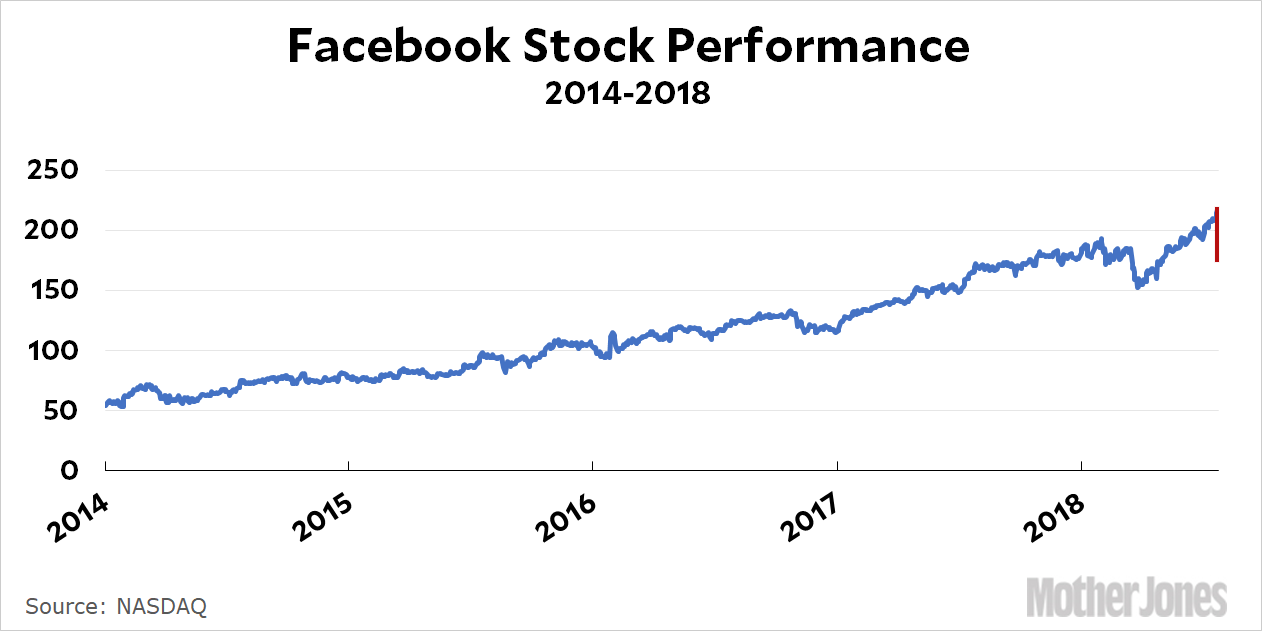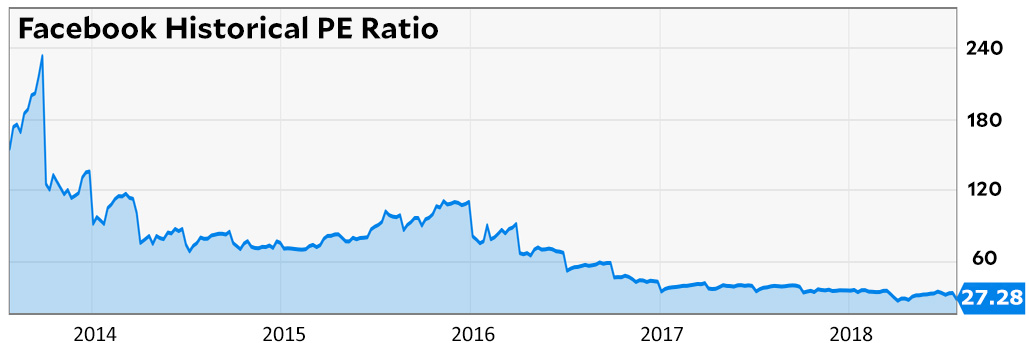Facebook crashed on Wednesday after it released its Q2 earnings report. The Washington Post’s take was pretty typical:
The cost of years of privacy missteps finally caught up with Facebook this week, sending its market value down more than $100 billion Thursday in the largest single-day drop in value in Wall Street history. Worries about the rising costs of privacy regulations and controversies … played a key role in a major Wall Street selloff that started Wednesday night after Facebook reported earnings. Facebook’s stock closed down 19 percent Thursday, at its lowest level in nearly three months.
Well, maybe. There’s no question that Facebook’s share price took a huge hit:

So what’s missing from the Post’s lead? First, there’s the phrase I omitted. Here’s the full sentence:
Worries about the rising costs of privacy regulations and controversies, along with declining growth in users and revenue played a key role in a major Wall Street selloff that started Wednesday night after Facebook reported earnings.
Second, a closer look at Facebook’s tumble shows that the earnings report itself produced only a modest drop. Revenue growth was slightly disappointing and user growth was pretty anemic, which caused a 7 percent drop—nothing to sneeze at, but not panic selling either. Apparently investors heard the numbers and weren’t, in fact, worried much about privacy regulations even after months of frenzy about it. The huge drop came only after Mark Zuckerberg finished the blah-blah portion of the earnings call and CFO David Wehner took over. Facebook’s growth rate, he said, would probably drop about 20 points by the end of the year. That was when the panic started, as the Wall Street Journal’s intraday trading chart shows:

Wehner was actually pretty insistent that his dismal forecast was only slightly related to privacy issues. Maybe that was happy talk, maybe not. But it almost doesn’t matter. If we take him at his word, the slowdown is actually because Facebook’s core growth is slowing and they’re focusing more on new products that produce less revenue. Conversely, if we assume that Wehner was sugarcoating Facebook’s privacy problems, it means Facebook’s core business is slowing because those privacy problems are real and permanent. And it’s not as if investors haven’t been expecting this for a while:

If we assume a steady-state PE of around 15, Facebook has been steadily declining in that direction for years, which is perfectly normal. Nonetheless, it’s not there yet and it’s still trading at a multiple that assumes earnings growth well in excess of normal. One way or another, Wehner put a huge bullet hole in that assumption, and Facebook’s stock reacted the way high-flying tech stocks usually do to bullet holes: they crash.
Tech investing in fast-growing companies is always a game of musical chairs. Professional investors aren’t idiots, and they know that high growth can’t last forever, but they can’t afford to pull out of a stock while everyone else is still playing the game. So they watch nervously, ready to panic when the right excuse presents itself. This week it did.
I have my doubts that Facebook is truly endangered by the latest round of privacy outrage. But it doesn’t matter. Wehner made it pretty clear that growth is slowing no matter what. After all, when you have 2 billion users and already own a huge percentage of the online advertising market, how much upside is there? Unless that newly discovered lake on Mars is really an underground martian city and it turns out that martians are eager to gossip with earthlings about Demi Lovato’s latest problems, there’s a limit to Facebook’s future market.

















